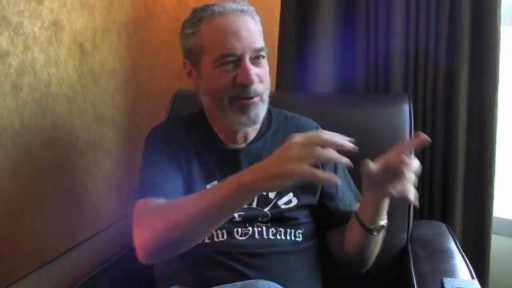“When a man’s far away from his country for a long time, his language becomes more precise, more pure.” — Yehuda Amichai
Like the oddly named disposable cup sizes at coffee chains (in the Starbucks universe, for example, what most people would call “small” becomes “tall,” while “venti” is Italian for “twenty,” as in ounces), most single-author poetry collections come in standard, if fluidly defined, lengths. Chapbooks, which contain up to thirty or so pages of poems, and full collections, with forty pages or more, provide a snapshot of the poet’s work through verse roughly contemporaneous in composition. Then come the “selected” and “collected” volumes, the first implying—if not necessarily meaning—that the poet has culled her duds and disasters out. Both offer something between a “best of” medley and a mid-career retrospective. “Complete” poems, like life insurance and last wills and testaments, only appear post-mortem under the careful eye of some more or less qualified functionary.
A special feature of “selected/collected” and “complete” volumes is evidence of a poet’s recurrent concerns or themes, often quite consistent over time, and development in craft—usually (but not always) trending toward less self-consciously constructed verse as the poet grows ever more at home in her idiom. At the risk of oversimplifying, most poets—perhaps writers in any genre—spend their careers repeating themselves in increasingly refined ways. This is hardly a badge of mediocrity. Great writers bring the formative touchpoints and irritant nodes of their inner lives to bear on their work, mapping landscapes of universal experience through the particularities of their own. Consider, for example, the many acclaimed poets who draw on their individual spiritual biographies to explore the role, if any, of a comprehensive faith in the disenchanted fragments of modernity: Emily Dickinson, Matthew Arnold, T. S. Eliot, Geoffrey Hill, Yehuda Amichai, and Czeslaw Milosz to name but a few.
Rodger Kamenetz’s recent collection of old and new verse, The Missing Jew: Poems 1976-2022 (Ben Yehuda Press), makes its home in this tradition. Born in Baltimore and living in New Orleans, where he held dual appointments in English Literature and Religious Studies at Louisiana State University, Kamenetz has published nine volumes of poetry. Each builds on his prior work, often revisiting, reconsidering, and reimagining previous poems in the Jewish tradition of midrash. As one critic observes, Kamenetz “recovers Jewishness as a field for discourse, not sentimentalized imagery. In direct and imaginative address, he puts the question of Jewishness under discussion with large parts of honesty and humor.”
A list Kamenetz’s prose works suggests the contours of his abiding interests. In The Jew in the Lotus, he writes of an ongoing dialogue between contemporary Jewish and Buddhist masters, including a historic pilgrimage to the Dalai Lama. Stalking Elijah returns to his religious roots, engaging modern Jewish mystics. In Terra Infirma, Kamenetz chronicles his fraught relationship with his mother, who died of cancer in her fifties. Burnt Books is a dual biography of Franz Kafka and the Hasidic Rabbi, Nachman of Bratslav, finding fascinating resonances between their remarkable lives. The History of Last Night’s Dream explores traditional and modern ways of understanding dreams and their meaning.
All these concerns appear in his poetry, but a central question in The Missing Jew is “What does it mean to live in the Jewish diaspora, especially in an America wildly ambivalent about particulars of identity?” It’s one thing to remain exiled from one’s ostensible homeland, quite another for the significance of one’s Judaism to be both freely chosen and externally imposed. What keeps Kamenetz’s poetry from becoming a long-persecuted minority’s dreary catalogue of atrocities, resentments, and microaggressions is his unfailing humor, ranging from whimsical to mordant but never cruel or self-sparing. His is a generous humor in which the borders between schlemiel, schlemazel, and mensch transect each human heart. In an early poem, he speaks of his family origins:
Jews do not come from heaven they come from Russia with green eyes and olive skin. Jews do not go to heaven they go to Baltimore.
In a later poem, Kamenetz’s midrashic alchemy transforms this self-deprecating laughter into loveliness:
“Jews do not go to heaven…”
But heaven comes to every woman who sees the leaf uncurl the petal open and the horizon dense with light who smells the breath of the newborn and remembers the scent in the hour of her death.
In formal terms, these poems range from free verse and prose poems to tightly wound tercets. Kamenetz writes readily accessible verse, his diction precise but not pedantic. Each of the collections excerpted in this new book concludes with a set of proverbs—commentaries on modern life distilled into quirky aphorisms: “We cry for justice but beg for mercy,” “The face of your enemy is a mirror,” “If you never lose your balance, you can’t dance,” or “When you get to what you want it isn’t.”
As, over time, he increasingly inhabits his craft, Kamenetz subtly probes the complexities and contradictions of accommodated exile and modern doubt. In “Shabbat Bride, Western Wall,” he joins a “gallery who like me are torn/between guilt and ridicule,” in Jerusalem before the stones of Herod’s destroyed temple:
…mortared with notes from the living to the dead, from the dead to the dead. “This god is very literate,” a mourner joked but wrote her special prayer all the same and stuffed it with the rest beneath a blooming bush that grew like a practical miracle on the shelf of the centuries flowering so wildly above the kerchiefed heads of the women’s section that you had to start believing in something…
In “The Master of the Good Name,” which renders into English the title of Hasidism’s mystical founder, the Baal Shem Tov, Kamenetz wonders what it means to be master of a Divine name “that can’t be spoken,” for, “If it’s only a human grammar/that a name can ever name/every word is a death.” A later poem, “Rafael,” interrogates his own names and loyalties:
I bear the marks of exile in my name When I become the silent Jew who mourns Not for The Temple or Jerusalem But a stream in the hills of Ein Gedi …They do not miss me there as I miss me Resting my bones in a foreign bed Nor do they know my name is Rodger there They only know me by my secret name The healing angel calls behind the wall I pass through in the dream of coming home.
Like Stephen Dedalus in James Joyce’s A Portrait of the Artist as a Young Man, who leaves Ireland “to encounter for the millionth time the reality of experience and to forge in the smithy of my soul the uncreated conscience of my race,” Kamenetz embraces—albeit with a sense of humor and humility Dedalus seems incapable of—his place in the diaspora to interrogate his and his people’s identity. These are poems to pore over and wrestle with as Jews have done with wise words for centuries. They brim with intelligence and insight from which gentile readers like me will find much to learn. Go and do likewise.
Brian Volck is a pediatrician and writer living in Baltimore. He is the author of a poetry collection, Flesh Becomes Word, and a memoir, Attending Others: A Doctor’s Education in Bodies and Words. His website is Brianvolck.com





